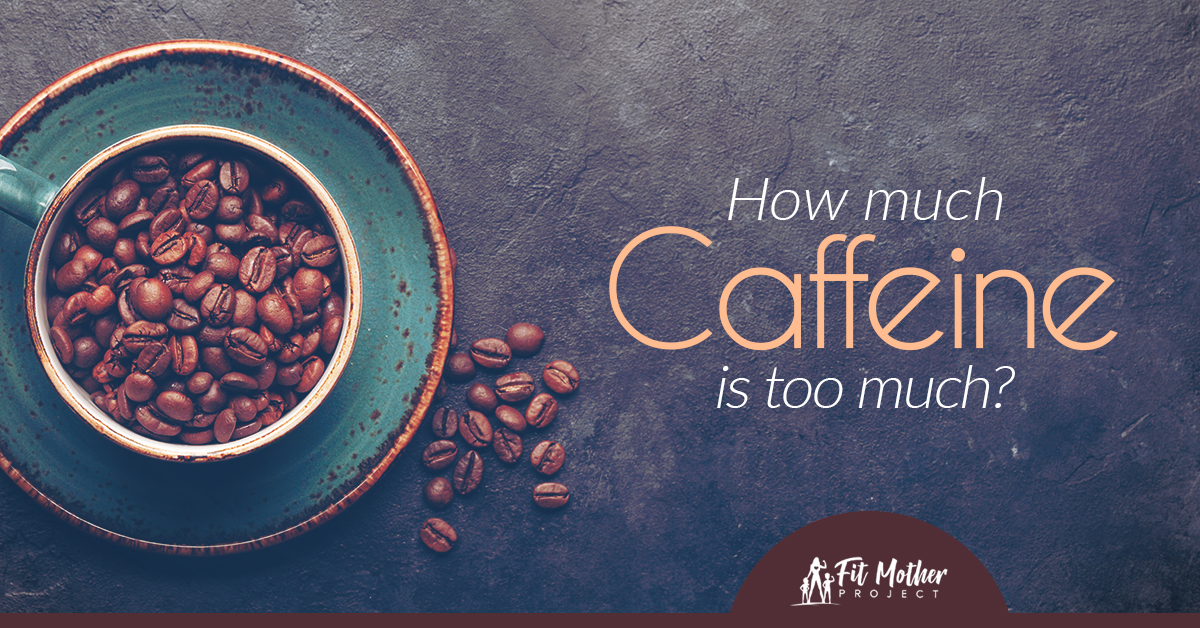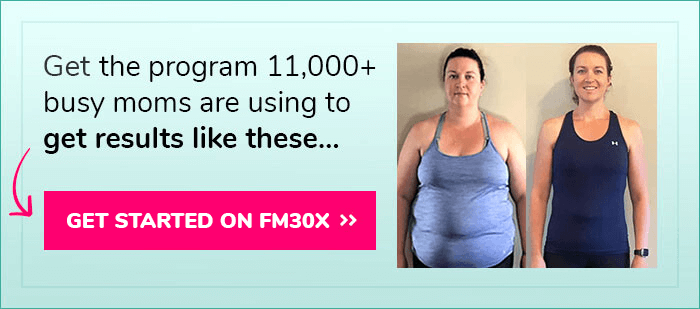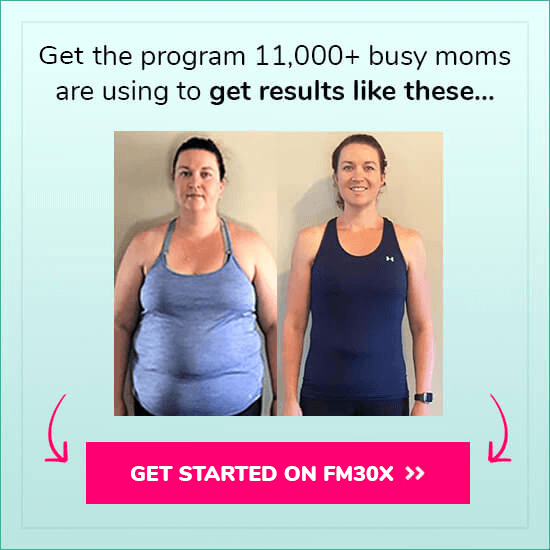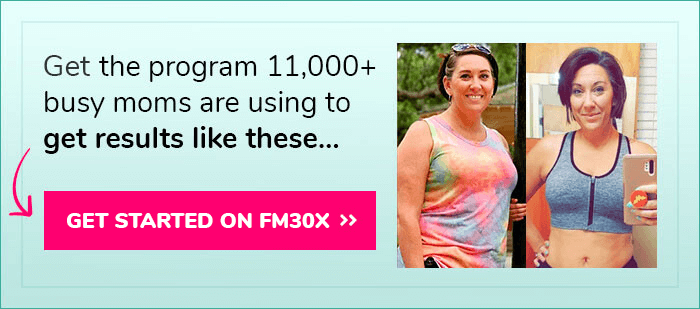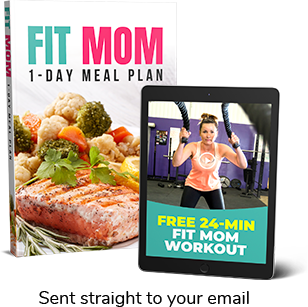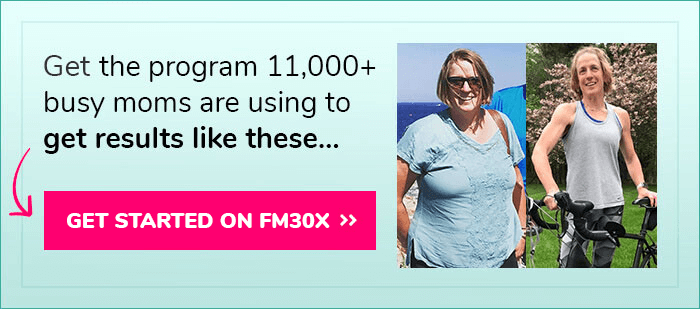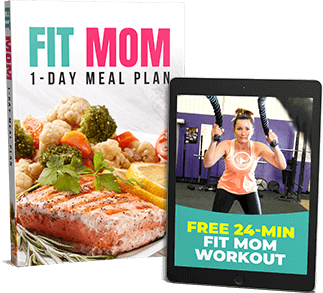If you're like many people, caffeine is part of your daily morning ritual. If you're wondering how much caffeine is too much, you're not alone.
Too much of a good thing can indeed be problematic.
Is caffeine really good for you?
How much caffeine is too much?
Knowing the facts about caffeine and your health is a must!
Let's dig deeper and finally answer the question, how much caffeine is too much?
Looking for some breakfast ideas to warm up your mornings? These recipes are healthy, mouth-watering, and easy to make!
What is Caffeine?
Caffeine is a central nervous system stimulant found naturally in some plant-based foods and drinks.
It's commonly added to energy drinks, dietary supplements, some medications, and other foods or drinks.
While caffeine can offer you numerous benefits, in excess it may cause problems for your health.
That's why knowing how much caffeine is too much is so important.
What Are the Benefits of Caffeine?
Ingesting caffeine offers pros and cons, but nearly 85% of people in the United States consume at least one caffeinated drink daily.
Some of the many benefits associated with caffeine include:
- More energy
- Improved mental alertness
- A higher metabolism
- Increased physical performance
- Improved weight management
- Enhanced fat burning
Studies show that ingesting caffeine one hour prior to exercise can improve exercise endurance and performance.
The National Institutes of Health (NIH) reports that caffeine can enhance weight loss, decrease gradual weight gain over time, and stimulate fat burning.
Fit Mother Project is the first sustainable weight loss program designed exclusively for busy mothers just like you... FM30X is the first sustainable weight loss program designed exclusively for *busy* mothers like you... JOIN OUR fit
mother
PROGRAMJOIN OUR FIT MOTHER 30X PROGRAM
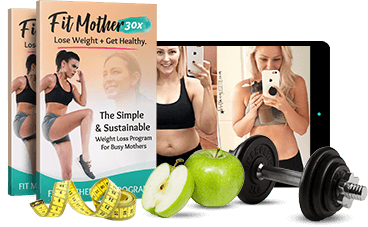
How Much Caffeine is Too Much?
Answering the question “how much caffeine is too much?” can be difficult, as everyone is different.
But for many healthy adults, the NIH suggests that 400-500 milligrams of caffeine per day appears to be safe.
The U.S. Food and Drug Administration (FDA) says 400 milligrams of caffeine daily for most healthy adults is a safe upper limit.
This amount of 400 milligrams is present in about 4-5 cups of regular coffee.
The FDA recommends children and teenagers avoid caffeine and women who are pregnant, trying to become pregnant, or breastfeeding further limit caffeine intake (based on their doctor's instructions).
What Are Side Effects of Too Much Caffeine?
Caffeine isn't for everybody, especially in large amounts.
Possible negative effects associated with excessive caffeine intake include:
- Nervousness
- Jitteriness
- Nausea
- A racing heartbeat
- Irritability
- Upset stomach
- Vomiting
- Insomnia
- Anxiousness
- Headaches
- Depression
- Muscle tremors
- Frequent urination
- Inability to control urination
Caffeine consumption has addictive properties, with possible withdrawal symptoms if you stop consuming it abruptly.
If you're consuming more caffeine than what's safe and healthy for you, gradually cut back on it to reduce unpleasant symptoms – such as drowsiness, anxiety, irritability, and headaches.
Are Caffeinated Foods, Drinks, and Medications Healthy?
Some caffeinated drinks are healthy for you, while others … not such much!
Evaluate the following caffeinated foods and drinks and their caffeine content to determine which, if any, are right for you!
Coffee
Unsweetened coffee is a healthy choice, in moderation, as coffee contains natural antioxidants and caffeine but it's low in calories (containing 5 calories or less per serving).
The caffeine content in different types of coffee is as follows:
- 1 cup of brewed coffee: 96 milligrams of caffeine
- 1 ounce of espresso: 64 milligrams of caffeine
- 1 cup of instant coffee: 62 milligrams of caffeine
- 1 cup of brewed decaffeinated coffee: 2 milligrams of caffeine
- 1 cup of instant decaffeinated coffee: 2 milligrams of caffeine
- 1 ounce of decaffeinated espresso: 0 milligrams of caffeine
Studies show that consuming coffee regularly (3-4 cups per day) can reduce your risk of all-cause mortality, heart disease, cancer, neurological problems, liver disease, and metabolic conditions.
Green coffee bean extract inhibits fat accumulation and can enhance glucose metabolism.
Tea
Like coffee, tea is loaded with health-promoting antioxidants but contains just 5 calories or less per serving.
Antioxidants found in tea, particularly green tea, can reduce your risk of illnesses and chronic diseases.
The caffeine content of different types of teas is as follows:
- 1 cup of brewed black tea: 47 milligrams of caffeine
- 1 cup of brewed green tea: 28 milligrams of caffeine
- 1 cup of ready-to-drink bottled tea: 19 milligrams of caffeine
- 1 cup of brewed decaffeinated black tea: 2 milligrams of caffeine
Studies show that drinking black tea regularly can reduce your risk of heart disease.
Additional research shows that green tea can increase collagen and elastin content in your skin to diminish signs of aging and reduce your risk of Alzheimer's disease and other neurodegenerative disorders.
The National Institutes of Health reports that green tea and green tea extract can increase energy expenditure and fat-burning, decrease fat absorption, and optimize healthy weight management.
Soda
Many types of regular and diet sodas contain caffeine.
While consuming caffeine in moderation can offer some benefits, drinking soda isn't the best for your health.
Sodas are often loaded with added sugar or other preservatives but contain little to no essential nutrients.
Regular and even diet sodas are linked with weight gain and abdominal obesity.
The caffeine content in specific types of soda is as follows:
- 1 cup of cola: 22 milligrams of caffeine
- 1 cup of citrus soda: 0 milligrams of caffeine
- 1 cup of root beer: 0 milligrams of caffeine
Regular soda also contains nearly 150 calories per can from added sugar.
Studies show that drinking soda and other sugar-sweetened beverages can affect brain health.
Researchers found that sugar-sweetened beverages can increase the risk of stroke, dementia, sleeping problems, memory impairment, motor coordination, and attention-deficit/hyperactivity disorder (ADHD) in children, as well as cognitive impairment and childhood obesity when consumed during pregnancy.
So steer clear of soda whenever possible in favor of water, coffee, or tea!
Let us show you how you can start losing weight this week! We'll email you our free meal plan & workout + email coaching.GET YOUR FREE
“FIT MOM” JUMPSTART
(MEAL PLAN + WORKOUT)
Flavored Energy Drinks
Energy drinks often contain caffeine or other stimulants to give you a quick boost of energy.
However, these drinks might also have added sugar, artificial colors or sweeteners, and other additives.
Energy drink products may contain the following amounts of caffeine:
- 1 ounce of an energy shot: 215 milligrams of caffeine
- 1 cup of an energy drink: 40-250 milligrams of caffeine
Consuming one energy drink daily probably won't put you over the daily upper limit for caffeine.
However, drinking too many of these beverages can cause caffeine overload and problems for your health.
Consume energy drinks (without added sugar) in moderation or choose coffee or tea instead.
When you know how much caffeine is too much, analyze nutrition facts labels and ingredient lists to learn more about exactly what's in your favorite energy-boosting drinks.
Dark Chocolate
Chocolate is another source of caffeine, containing a small amount of this stimulant.
While you should limit your intake of chocolate because of its sugar content, dark chocolate contains antioxidants and offers a variety of health benefits.
Examples include reduced inflammation, a lower risk of heart problems and other chronic diseases, and enhanced brain function.
The amount of caffeine present in different types of chocolate is as follows:
- 1 ounce of dark chocolate: 12 milligrams of caffeine
- 1.6 ounces of milk chocolate: 9 milligrams of caffeine
- 1 cup of hot chocolate: 5 milligrams of caffeine
- 1 ounce of white chocolate: 0 milligrams of caffeine
Eat chocolate in moderation and choose dark chocolate over other types of chocolate whenever you can!
Energy Water
Energy water is often free from calories, added sugar, and artificial ingredients.
The caffeine content in energy water may be 34-125 milligrams in each bottle or can.
Check nutrition facts labels on your favorite type of energy water to ensure it doesn't contain added sugar or fillers.
While bottled energy waters aren't necessarily unhealthy, choosing coffee or tea instead offers you the benefits of antioxidants in addition to caffeine.
Weight Loss Supplements
Because caffeine can increase your body's metabolism and energy expenditure, it's no surprise that some supplements marketed for weight loss or fat loss have caffeine in them.
However, caffeine pills and other dietary supplements might contain very high doses, so use caution and check supplement facts labels to ensure you're not overdoing it.
Always check in with your doctor before taking weight loss or other dietary supplements to ensure they are safe for you.
This is especially true if you have a medical problem or you take medications.
Medications
Believe it or not, some over-the-counter and prescription medications also have caffeine in them, so consider the content in medicines when tracking your daily caffeine intake.
Common over-the-counter and prescription medications with caffeine might contain 15-250 milligrams per dose!
Try these 5 healthy drinks to lose weight at home!
Who Should NOT Consume Caffeine?
Talk with your doctor to see if caffeine is safe for you to consume.
Children should not consume caffeine, while teenagers and pregnant women should limit it to less than 200 milligrams daily (or less if their doctor recommends it).
This holds true for women trying to become pregnant and those who are breastfeeding.
You might want to avoid caffeine if it interferes with getting a good night's sleep or you take medications or supplements (such as Ephedrine, Theophylline, or echinacea) that interact with it.
If drinking caffeine makes you feel jittery or causes other unpleasant side effects, you may want to cut back or avoid it altogether.
Find out what the 6 healthy drinks to buy at the store are and incorporate some healthy nutrition ideas into your diet!
How Can I Safely Incorporate Caffeine Into Meal Plans?
The decision of whether or not to incorporate caffeine into your daily meal plan is entirely up to you and your doctor.
Drink Coffee or Tea in the Morning
Adding coffee or tea to your meal plan offers you energy, increases in metabolism, and disease-fighting antioxidants.
After you drink water when you wake up each morning, have a cup of coffee or tea with breakfast.
Drink another cup of coffee or tea again at lunch if you'd like, but avoid consuming late in the day to ensure you get a good night's sleep.
Add Coffee or Tea to Protein Shakes
If you're seeking a nutritious, energy-boosting meal replacement or snack, consider adding coffee, tea, or green tea matcha powder to homemade protein shakes!
Drink a shake for breakfast, lunch, or as a pre- or post-workout snack.
Combine milk or plant milk with protein powder and coffee or tea – plus additional ingredients of your choice if you'd like!
You can also drink cold brewed coffee with just milk or plant milk if you prefer.
Nix Sugar-Sweetened Caffeinated Drinks
While sugar-sweetened drinks may give you energy, added sugar can contribute to gradual weight gain over time, obesity, and a higher risk of chronic diseases.
Choose coffee, tea, water, or energy water (without added sugar) over soda, sweet tea, lemonade, sugar-sweetened energy drinks, and even diet soda when possible!
Learn how to reduce sugar addiction and recognize sugar addiction symptoms!
Add in Dark Chocolate
If you're not a coffee or tea drinker and you have a sweet tooth, consider adding dark chocolate to your daily meal plan!
Dark chocolate contains a small amount of caffeine and less sugar than milk chocolate and white chocolate.
Plus, it's loaded with disease-fighting antioxidants!
Replace other sweet treats with a small amount of dark chocolate to gain a quick boost of energy and curb sweet cravings.
Don't Overdo It
While caffeine (when consumed in moderation) may offer some health benefits, don't overdo it!
Cut back on it if you experience headaches, jitteriness, a racing heart, or other side effects.
Try not to consume more than 400 milligrams per day.
Drink less than 4-5 cups of coffee daily and if you're used to consuming more than this, gradually cut back on your intake over time.
If you struggle to do so, mix coffee with milk or plant milk to dilute it, or choose decaffeinated coffee or tea instead!
Join a Healthy Lifestyle Program for Women
Joining a healthy lifestyle program for women, such as the Fit Mother Project, offers custom meal plans, fat-burning workouts, health coaching support, nutritious recipes, weekly newsletters, and more!
Consider trying the Fit Mother Project 30X (FM30X) program if weight loss is your goal.
In addition to knowing more about how much caffeine is too much, sign up for a Fit Mother Project free meal plan and workout today!
Erin Coleman is a registered and licensed dietitian with over 15 years of freelance writing experience. She graduated with her Bachelor of Science degree in nutritional science from the University of Wisconsin-Madison, and completed her dietetic internship at Viterbo University in La Crosse, Wisconsin. Prior to beginning her career in medical content writing, Erin worked as Health Educator for the University of Wisconsin-Madison Department of Internal Medicine. Her published work appears on hundreds of health and fitness websites, and she’s currently working on publishing her first book! Erin is a wife, and a Mom to two beautiful children.
Fit Mother Project is the answer you’ve been looking for. Inside the program, you’ll receive: Our Fit Mother 30X Program (FM30X) is the answer you’ve been looking for. Inside FM30X, you’ll receive:If you’re a busy mom who wants to finally lose weight,
get healthy, and actually keep the pounds off for good,
this is the simple program you’ll love sticking to…
GET STARTED ON FM30X TODAY
If you’re a busy mom who wants to finally lose weight,
get healthy, and actually keep the pounds off for good,
this is the simple program you’ll love sticking to…
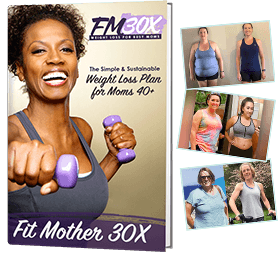
Learn More About FM30X

*Please know that weight loss results & health changes/improvements vary from individual to individual; you may not achieve similar results. Always consult with your doctor before making health decisions. This is not medical advice – simply very well-researched info on how much caffeine is too much.

